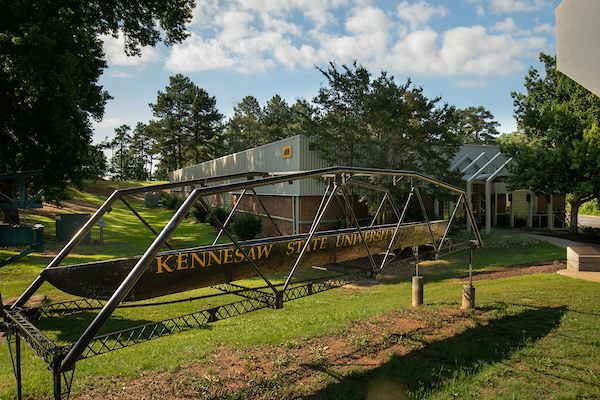Civil Engineering
Learn More About Civil Engineering
Admission Requirements
None.
This program does not have specific admission requirements. Only admission to Kennesaw State University is required to declare this major.
General Education Core IMPACTS Curriculum Requirements Specific to This Major
M: Students must take MATH 1190.
T: Students must take MATH 2202.
T: Students must take PHYS 2211/L and PHYS 2212/L.
Related Minors or Certificates Available
- Environmental Engineering Minor
Sample Classes
-
CE 3201: Structural Analysis
This course is the introductory course in identification and analysis of basic structural elements. Topics include the determination of beam deflections, methods for the computational analysis of statically indeterminate trusses, moment distribution, and the analysis of frames.
-
CE 3701:Geotechnical Engineering
Introduction to fundamental knowledge of soil/foundation engineering for construction projects such as commercial building, highway, bridge, airport, and water/wastewater treatment plant. Course topics will include composition of soils, subsurface investigation, soil classification systems, groundwater flow, permeability, compaction, stress/strain analysis, shear strength, consolidation/settlement, shallow and deep foundations, earth retaining structures, slope stability, and ground modification methods.
-
CE 4178: Highway Design and Construction
This course addresses many challenges facing engineers when designing and constructing highways. Areas of study include the design of horizontal and vertical alignments, roadside features, parking facilities, intersection design elements, traffic control devices, traffic signal operations and vehicle detection design, and the socioeconomic impacts of the roadway design.
-
CE 4353: Air Pollution Control
This course focuses on fundamental concepts of air pollution, emission sources, atmospheric dispersion, ambient concentrations, adverse effects, governmental regulations, emission standards, air-quality standards, processes and equipment for controlling emissions, and noise pollution.












